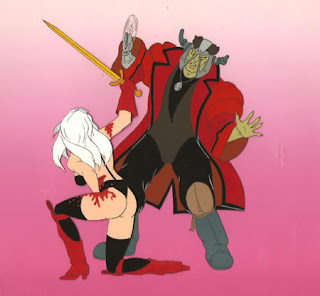It's getting to the point where marketers are being challenges to rethink our causal brand appropriation of cultures — even when we mean no harm.
Case in point:
The Hula app, "a free way to find STD testing, get the results on your phone, and share your verified STD status," has made some native Hawaiians angry.
From
Global News:
An online petition is asking for the “Hula” app to change its name.
...
The three college students who started the petition say they are not opposed to the app’s functions but don’t want to see the hula dance – a beloved cultural art form – exploited.
“My culture is more than a tourist destination,” said Kelly Luis, a student at Columbia University. “It is more than a place to go for the summer. It’s more than just sexy hula girls on the beach. There is a culture there.”
The
Change.org petition, which so far has just over 1200 signatures, details how Hula was a sacred art form that was suppressed by colonial missionaries, and is now degraded by sexualized portayals in popular culture.
Some protestors on the Hula Facebook page also bring up the supreme irony in naming an STD app after a Polynesian sacred rite. Following European contact in the late 1700s, venereal diseases introduced by foreign sailors decimated indigenous Pacific island nations. From the time of Captain Cook's landing in Hawaii in 1778 to 1853, the population of the islands
fell from an estimated 300,000 to just 71,019.
I have no doubt that the people developing the Hula app and brand bore no ill will towards the Hawaiian people.
Global reports that the company posted the following on their Facebook page:
“We are in the process of learning more from your community, discussing internally and hope to address your concerns shortly.”
I can't seem to find it, however.
The company's CEO and founder, Ramin Bastani,
told AP that he is going ahead with the brand name, but will stop using puns like "getting lei'd" because he "didn't realize that it was offensive."
Here's his story about the brand evolution:
The app was originally named Qpid.me, but it sounded too similar to a dating site and was changed to "Hula" because the company wanted to evoke a "sense of beauty and being relaxed," Bastani said. "It was a pop culture sense of the name."
"We loved the idea of calm and beauty of anything Hawaiian," he said, "which is the antithesis of anything having to do with health care."
Learning about Hawaiian culture has taught him that dancing hula is a "communication tool" used to pass on information among generations, Bastani said. "That plays very well with what we actually believe as the core of the company."
To be honest, I could have made the same mistake. It's really easy to see cultural traditions, which have been treated so superficially for so long in popular culture, as nothing more. And indeed, Hawaii itself has marketed a sexy, silly, version of Hula for some time.
This instance is not easy to be judgemental about. Native Hawaiians have the right to define what their cultural and religious properties mean to them, and are more than justified in being offended. At the same time, "mainstream" western culture has a tradition of treating
its own religions irreverently.
The Hula people most likely believe that the controversy will blow over. In the meantime, they will probably actually benefit from the publicity, since everyone now knows who they are.
Meanwhile, the Hawaiian students have an international stage on which to start to redefine the way we perceive and treat indigenous cultures and their best-known rituals.
In a weird, cynical, marketing-world way, everyone kind of wins this one.





































